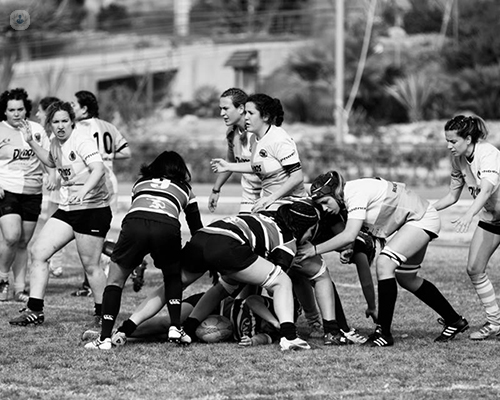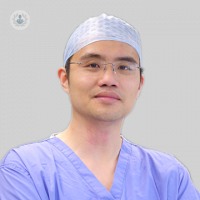How do I know if I have dislocated my knee?
Written by:A full on knee dislocation is very unusual as for that to happen requires a lot of force, such as a high energy car crash. On the other hand, knee cap dislocation is far more common and can happen suddenly when you twist your knee.

Leading orthopaedic surgeon and sports medicine specialist Professor Paul Lee explains how a dislocated knee is diagnosed, treated and how it can be prevented in the future.
How do I know if I have dislocated my knee?
Knee cap dislocation is very painful. Sometimes the bone will stick out to the side and will need to be pushed back immediately. Sometimes you may just feel a clunk and the knee becomes swollen. This could happen if your knee cap has come out and needs to go back in again. Either way, your knee will very painful and you will find it difficult to walk immediately.
How is it diagnosed?
Knee cap dislocation is diagnosed clinically. If the knee cap is not reduced spontaneously, you will notice a hard lump on the outside of the knee. Due to the nature of the thigh bone, you may also notice a hard lump on the inside of the knee, which is also part of your femur. However, if your knee is reduced spontaneously, it may require an X-ray or an MRI to diagnose the damage.
How is a dislocated knee treated?
Diagnosis is the key to treatment and it depends on the way that the knee was dislocated, as different structures could be damaged. It is important to reduce and push the dislocated knee cap back immediately. The longer it stays out, the harder it will be to go back in. A useful tip is to try and straighten the leg as much as possible before pushing it back.
Afterwards, it is essential to get a ’skyline’ X-ray of the knee to look for lonely damage. Depending on the patient’s age, activity level and expectations, the initial treatment would usually be a knee brace. If this dislocation has happened more than once, surgical intervention is advisable. There is a link between repeat knee cap dislocations and early osteoarthritis of the knee. Therefore, it should be treated as soon as possible.
How long does it take to recover?
If it’s the first time the knee has dislocated, it can usually be treated with a brace for a couple of weeks in order to give it a rest. The patient can start physio and, within three months, the recovery process should be over.
Depending on the way that surgery is performed, rehabilitation varies. We have published our tendon saving techniques for knee cap stabilisation. Without disturbing the hamstring tendons, we find that patients tend to recover much quicker.
How can I prevent this injury from recurring in the future?
Try to avoid contact sport if possible. However, most patients have a non-traumatic knee cap dislocation, which is usually due to an anatomical abnormality. Therefore, it will keep happening until we have solved the issues. This is why you must seek advice from a specialist as soon as possible if the knee cap has come out more than once.


